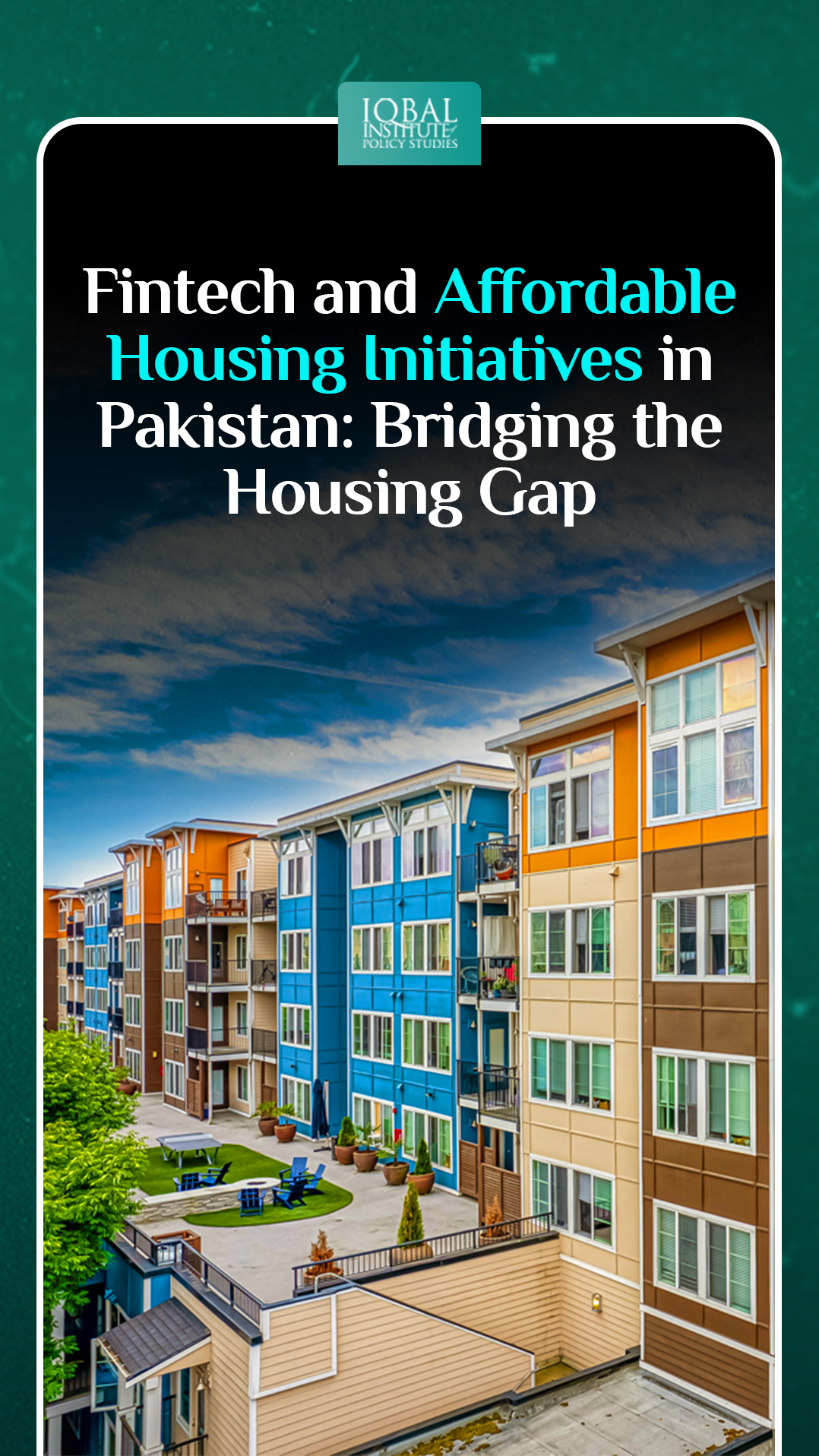Access to affordable housing is a fundamental right, but in Pakistan, as in many other developing countries, it remains an elusive dream for millions of people. Rapid urbanization, population growth, and limited resources have created a housing crisis that demands innovative solutions. Fintech, the convergence of finance and technology, has emerged as a powerful tool to bridge the housing gap and make affordable housing initiatives in Pakistan more accessible.
In this blog, we will delve into the critical role that fintech is playing in addressing the affordable housing challenge in Pakistan, exploring its impact, benefits, and some notable initiatives.
The Housing Challenge in Pakistan
Pakistan faces a formidable housing challenge, characterized by a staggering deficit of approximately 10 million housing units, according to estimates by the World Bank. This crisis is exacerbated by several critical factors.
Firstly, rapid urbanization is driving a surge in demand for housing, particularly in urban areas. Pakistan’s annual population growth rate, hovering around 2%, places immense pressure on housing resources. As rural populations migrate to cities in search of better economic opportunities, the urban housing shortage intensifies.
Secondly, inefficient land management practices and convoluted land acquisition processes contribute to the housing deficit. Land titling is often fraught with complexity, delays, and corruption, making it difficult for individuals to secure property rights and develop affordable housing projects.
Lastly, a lack of basic infrastructure in many urban areas, including inadequate water supply, sanitation facilities, and electricity, further compounds the housing challenge. The absence of these essential amenities hampers the development of affordable housing and perpetuates inadequate living conditions.
Addressing these formidable challenges demands a multifaceted approach that includes regulatory reforms, investment in infrastructure, and innovative solutions, such as fintech, to make housing accessible and affordable for all Pakistanis.
Factors contributing to this crisis include:
Limited Access to Financing
Traditional banking systems often exclude low-income individuals from mortgage opportunities due to stringent requirements and high-interest rates.
Inefficient Land Management
Land acquisition and titling processes can be lengthy, complex, and riddled with corruption, making it difficult for individuals to own land and property.
Lack of Housing Infrastructure
Many urban areas lack basic infrastructure such as water, sanitation, and electricity, making it challenging to develop affordable housing projects.
Fintech: A Catalyst for Change
Fintech is revolutionizing the way financial services are accessed and delivered, and its impact on the affordable housing sector in Pakistan is significant. Here’s how fintech is contributing to bridging the housing gap:
Digital Payments and Transactions
Fintech companies in Pakistan are facilitating secure and efficient digital payments for property transactions. This reduces the reliance on cash, minimizes fraud, and increases transparency in real estate dealings.
Microfinance and Peer-to-Peer Lending
Fintech platforms are providing micro-loans and facilitating peer-to-peer lending for housing purposes. These platforms often have more relaxed eligibility criteria and lower interest rates, making homeownership more attainable.
Blockchain for Property Records
Blockchain technology is being explored to create secure and tamper-proof property records, simplifying land ownership and reducing the risk of land disputes.
Online Property Marketplaces
Fintech-driven property marketplaces are making it easier for buyers and sellers to connect, compare prices, and find affordable housing options.
Credit Scoring and Risk Assessment
Fintech companies are leveraging alternative data sources and algorithms to assess creditworthiness, allowing individuals with limited traditional credit histories to access financing for housing.
Notable Fintech-Driven Initiatives
Several initiatives in Pakistan are exemplifying the potential of fintech in addressing the affordable housing challenge:
Naya Pakistan Housing Program
Launched by the government, this program aims to construct affordable housing units for low and middle-income households. Fintech is being used to streamline the application process and facilitate mortgage financing.
Kamyab Jawan Program
This program, which focuses on youth empowerment, includes financing options for housing through partnerships with fintech companies, making homeownership more accessible to young Pakistanis.
Tameer Microfinance Bank
Tameer Microfinance Bank, in collaboration with fintech partners, offers micro-loans for housing and home improvement, enabling low-income individuals to invest in their homes.
Benefits of Fintech in Affordable Housing
The integration of fintech into affordable housing initiatives in Pakistan brings numerous benefits:
Increased Access
Fintech solutions widen access to housing finance, allowing a broader segment of the population to participate in homeownership.
Cost Efficiency
Fintech-driven processes reduce transaction costs, making housing more affordable for both buyers and developers.
Transparency
Blockchain and digital payment systems enhance transparency in property transactions, reducing the risk of fraud and corruption.
-
Financial Inclusion
Fintech enables financial institutions to reach previously unbanked or underbanked individuals, promoting financial inclusion.
Efficient Decision-Making
Data-driven credit scoring and risk assessment algorithms help lenders make informed lending decisions, reducing default rates.
Challenges and Considerations
While fintech offers immense promise in addressing the affordable housing crisis, there are challenges and considerations to keep in mind:
Regulatory Framework
Ensuring that fintech activities are regulated appropriately to protect consumers and maintain financial stability is crucial.
Digital Literacy
Promoting digital literacy among potential homeowners is essential to ensure they can fully utilize fintech services.
Data Security
As the housing sector becomes more digital, securing sensitive personal and financial data is paramount.
Infrastructure Development
Investment in digital infrastructure, including internet connectivity, is necessary to ensure the widespread adoption of fintech solutions.
Conclusion
Fintech is a game-changer in the pursuit of affordable housing in Pakistan. By addressing the traditional barriers to homeownership, such as limited financing options and cumbersome property transactions, fintech is helping to make housing more accessible for millions of Pakistanis. As the government, financial institutions, and fintech companies continue to collaborate, the dream of affordable and decent housing for all in Pakistan is becoming increasingly attainable.
This article is written by Radma Nouman. Radma is a research analyst at the Iqbal Institute of Policy Studies (IIPS).



Leave a Reply